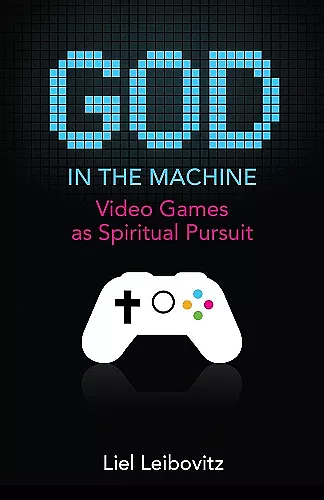God in the Machine
Video Games As Spiritual Pursuit
Format:Paperback
Publisher:Templeton Foundation Press,U.S.
Published:26th May '15
Should be back in stock very soon

What might Heidegger say about Halo, the popular video game franchise, if he were alive today? What would Augustine think about Assassin’s Creed? What could Maimonides teach us about Nintendo’s eponymous hero, Mario? While some critics might dismiss such inquiries outright, protesting that these great thinkers would never concern themselves with a medium so crude and mindless as video games, it is important to recognize that games like these are becoming the defining medium of our time. We spend more time and money on video games than on books, television, or film, and any serious thinker of our age should be concerned with these games, what they are saying about us, and what we are learning from them.
Yet video games remain relatively unexplored by both scholars and pundits alike. Few have advanced beyond outmoded and futile attempts to tie gameplay to violent behavior. With this rumor now thoroughly and repeatedly disproven, it is time to delve deeper. Just as the Museum of Modern Art in Manhattan recently acquired fourteen games as part of its permanent collection, so too must we seek to add a serious consideration of virtual worlds to the pantheon of philosophical inquiry.
In God in the Machine, author Liel Leibovitz leads a fascinating tour of the emerging virtual landscape and its many dazzling vistas from which we are offered new vantage points on age-old theological and philosophical questions. Free will vs. determinism, the importance of ritual, transcendence through mastery, notions of the self, justice and sin, life, death, and resurrection all come into play in the video games that some critics so quickly write off as mind-numbing wastes of time. When one looks closely at how these games are designed, their inherent logic, and their cognitive effects on players, it becomes clear that playing these games creates a state of awareness vastly different from when we watch television or read a book. Indeed, the gameplay is a far more dynamic process that draws on various faculties of mind and body to evoke sensations that might more commonly be associated with religious experience. Getting swept away in an engaging game can be a profoundly spiritual activity. It is not to think, but rather to be, a logic that sustained our...
“Many dismiss video games as a worthless pursuit, and some even go so far as to consider them a harmful and addictive activity that sets individuals towards violence. Liel Leibovitz defies those assumptions while explaining gaming’s allure and place in the world . . . this work is a thoughtful, well-written, and concise scholarly analysis of a popular pastime. As such, it is a recommended resource for college and university libraries.”
-Sarah E. Keil, Trevecca Nazarene University, The Christian Librarian
“Leibovitz’s book is brief but wildly ambitious, studded with references unexpected in writing on this subject.”
-New York Review of Books
-Michael Philliber
"Liel Leibovitz has thought more deeply than anyone I know about the meaning of video games; he has managed to persuade me, without overloading my circuits, that they belong not to the seventh circle of hell-where I’d consigned them- but to the great American tradition that turns a dark theology of sin into redemptive popular entertainment."
-Jonathan Rosen, author of The Talmud and the Internet: A Journey Between Worlds
ISBN: 9781599474816
Dimensions: 216mm x 140mm x 15mm
Weight: 200g
160 pages
First Edition, 1